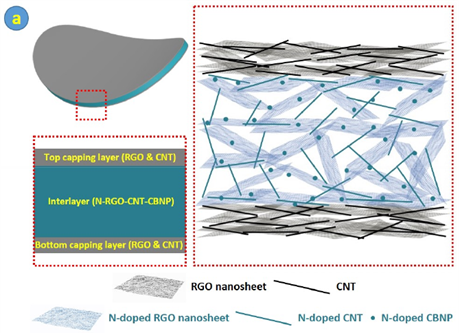Wearable biomedical electronic devices (WBEDs) can be attached to human epidermal tissues and used for analyzing diverse health-related chemical/biological signals. Wearable sensors and power devices, which are mainly constituted by flexible composite electrodes (FCEs), are generally regarded as two functional core components of WBEDs. Therefore, developing advanced FCEs capable of realizing high-performance physiological index monitoring, energy storage or even both of them has attracted considerable research attention.
In recent years, due to their multiple function and performance superiorities, carbon-based paper-like films have been preliminarily exploited as advanced substrates of FCEs.
This Ph.D. project is devoted to the design, fabrication, characterization and application of novel carbon-based FCEs. Employing a series of facile, efficient, and scalable fabrication techniques, the engineering of three types of carbon-based paper-like films are explored. The films include nitrogen-doped hybrid dimensional nanocarbon based paper electrodes, gold nanoparticles decorated reduced graphene oxide papers, and copper cobaltate nanowires loaded on activated graphite papers.
Then these carbon-based paper-like films are either directly used as high-performance FSSSC electrodes, or employed as advanced flexible substrates to load different electrode active materials and realize superior bifunctional features. Based on a series of structural and compositional optimization, the carbon-based FCEs developed in this Ph.D. study possess excellent comprehensive performances towards energy storage or/and biosensing. Moreover, compared with other types of FCEs, the carbon-based FCEs developed in this Ph.D. study exhibit prominent practical advantages, such as low cost and facile fabrication.

Schematic illustration of the N-RGO-CNT-CBNP-P structure.